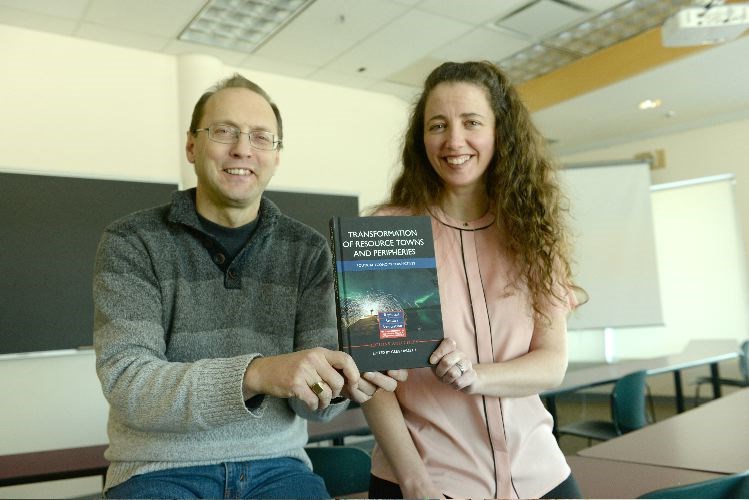UNBC geography professor Greg Halseth played a major role in the development of a new book that describes the process of transition and change in resource-dependent rural and small-town regions since the end of the Second World War.
The book, titled Transformation of Resource Towns and Peripheries: Political Economy Perspectives, was edited by Halseth and he also contributed to the writing of three chapters. Halseth joined forces with Laura Ryser - research manager with UNBC's Rural and Small Town Studies program - and Simon Fraser University's Sean Markey to write Chapters 3, 7 and 11. The chapters deal with industrial reorganization, labour restructuring and community responses to economic restructuring in the town of Mackenzie, located 183 kilometres north of Prince George.
"As many rural and small town places work through processes of change, it is important to recognize that they are responding to common pressures and can learn much from one another about how to successfully navigate transition," said Halseth, who is also a Canada Research Chair in Rural and Small Town Studies.
In more general terms, chapters in the book explore three main themes: how corporate ties and trade linkages are changing and impacting rural communities and regions; how resource industry employment is changing in these small communities; and how local community capacity and leadership are working to mitigate challenges and take advantage of new opportunities. The book incorporates international case studies from Australia, Canada, Finland and New Zealand and highlights similarities and differences in patterns and practices in each country.
"The context of today is unlike the context of 50 years ago when many resource-dependent places established their economic and community foundations," Halseth said. "By sharing the stories from four countries, this book highlights the new and innovative ways by which they must respond."



